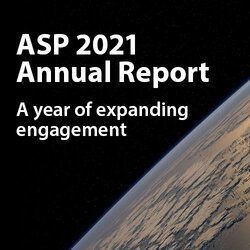2021 Annual Report
Published in May, 2022, the ASP's 2021 Annual Report shared the incredible work and accomplishments which have expanded our global reach in 2021.
Your support gives those who could not participate in our renowned face-to-face programs the opportunity of experiencing our new virtual offerings that continue the ASP's innovative and creative work.

